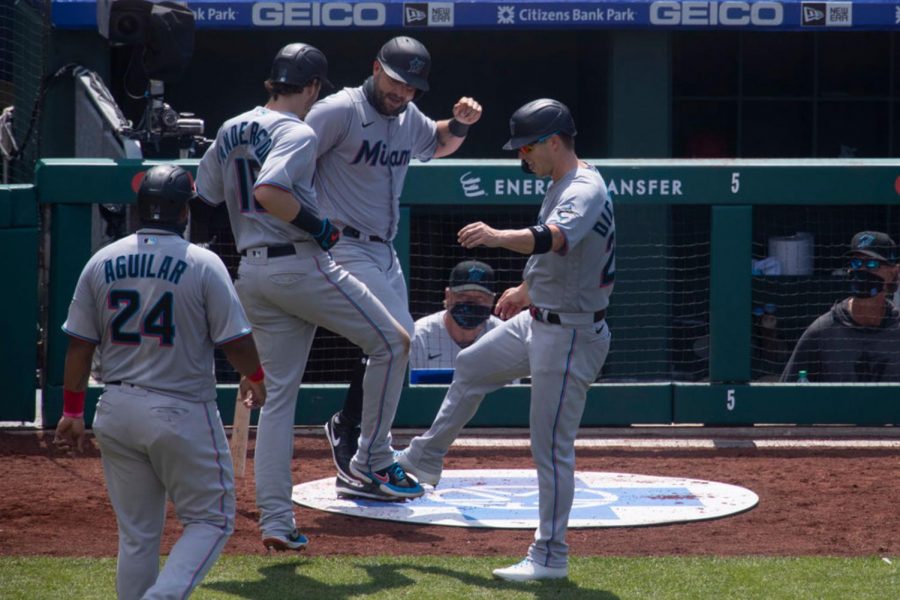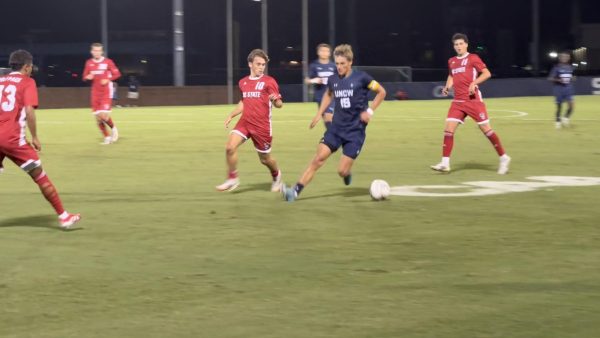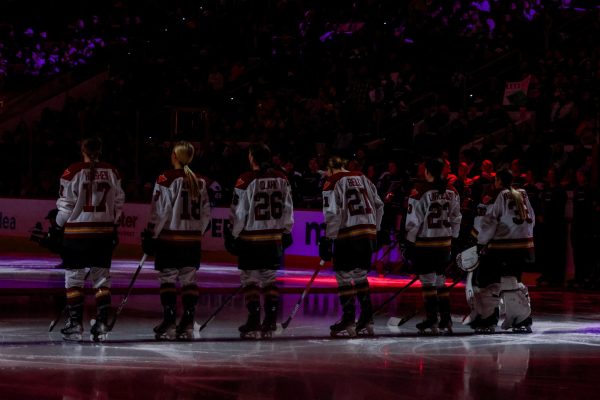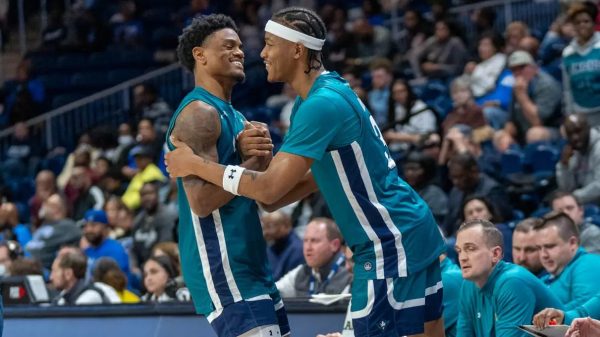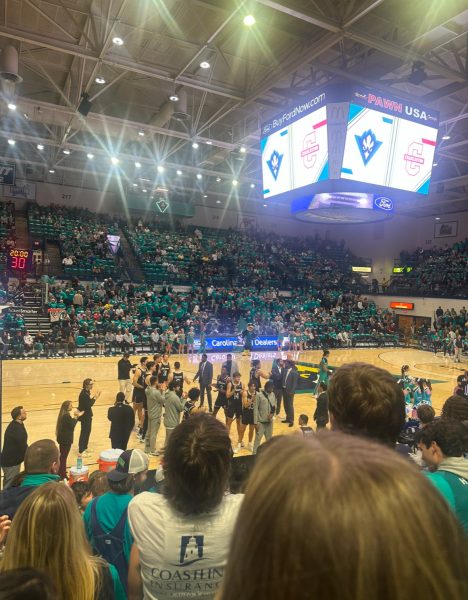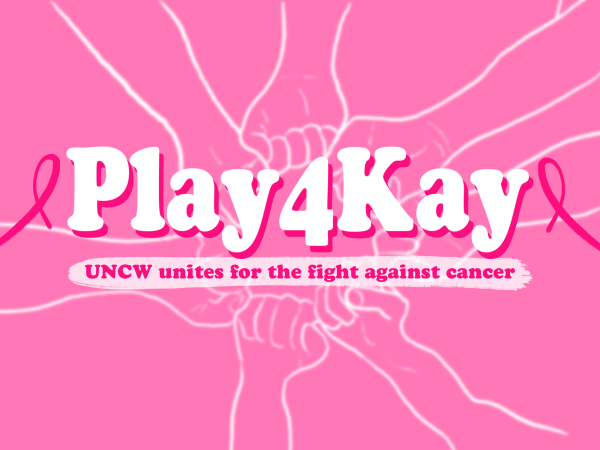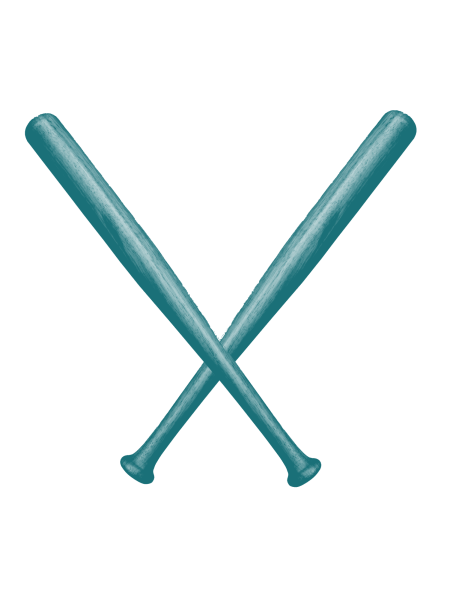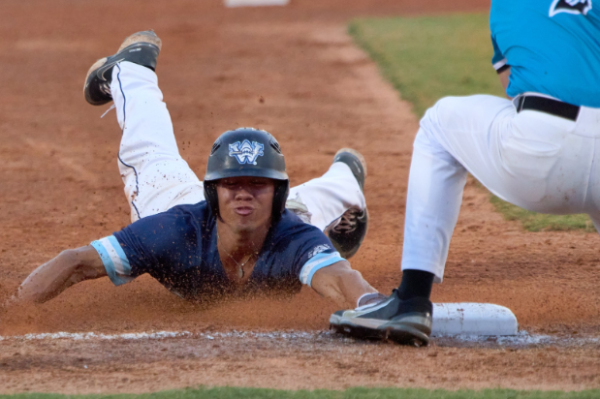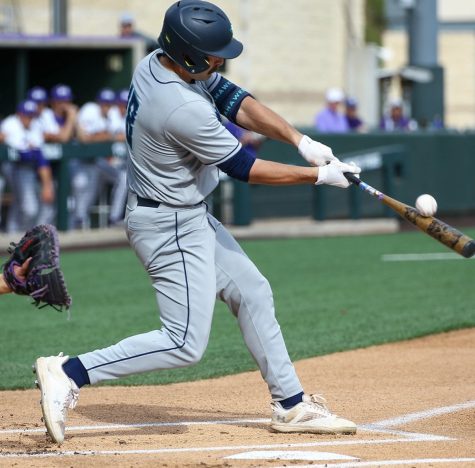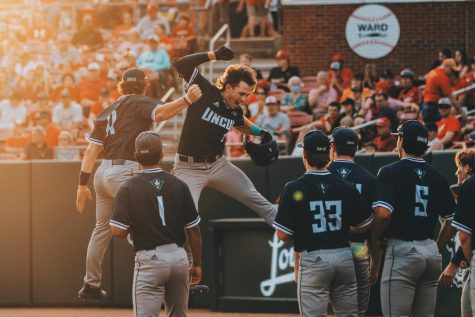Marlins, Phillies play suspended amid team-wide COVID-19 outbreak
Photo by Mitchell Leff/Getty Images/TNS
Jesus Aguilar #24, Brian Anderson #15, Francisco Cervelli #29, and Corey Dickerson #23 of the Miami Marlins react after a three run home run by Anderson in the top of the fifth inning against the Philadelphia Phillies at Citizens Bank Park on July 26, 2020 in Philadelphia, Pennsylvania. The Marlins defeated the Phillies 11-6.
The 2020 Major League Baseball season is less than a week old and the league is already facing issues related to the COVID-19 virus.
Major Leage Baseball (MLB) has opted to suspend the seasons of the Miami Marlins and Philadelphia Phillies to give both organizations time to control the situation, it announced earlier today. Miami’s season is set to resume on Monday, Aug. 3, assuming the situation does not worsen.
Problems arose after at least 17 members of the Marlins club, including at least 15 players, tested positive for the virus over the last few days. The Phillies completed a three-game series with Miami over the weekend, raising concerns about the virus spreading. The Phillies will have the rest of the week off in hopes that no members of the club test positive. Philadelphia is set to resume play on Friday.
“The health and safety protocols were designed with a challenging circumstance like the one facing the Marlins in mind,” MLB said in a statement released earlier today. “The response outlined in the joint MLB-MLBPA Operations Manual was triggered immediately upon learning of the cluster of positive cases, including contact tracing and the quarantining and testing of all of the identified close contacts. The Marlins’ personnel who tested positive remain in isolation and are receiving care.”
In the wake of this outbreak, MLB had to reschedule several games set to be played in the coming days. The Marlins were set to play four games with the Baltimore Orioles this week (two in Miami, two in Baltimore), while the Phillies had a four-game stretch with the New York Yankees (two in Philadelphia, two in New York). Instead, those matchups have been postponed with the Yankees and Orioles squaring off on Wednesday and Thursday in Baltimore instead.
The Washington Nationals were also impacted by the schedule change, with its three-game series with Miami set for this weekend now postponed. No make-up games were scheduled for the Nationals, so Washington will have the weekend off.
According to a release from MLB, as of Opening Day, it has conducted 32,000 tests for the coronavirus with only 0.3 percent (approximately 96) coming back with positive results. Nearly 6,500 tests have been administered since last Friday, with the Marlins having the only positive results.
MLB took a slightly different virus management plan from the National Basketball Association and the National Hockey League—with the two latter organizations implementing a bubble system. All members and players of these leagues are confined to areas with strict monitoring of visitors.
The NBA bubble is set in Orlando, while the NHL bubble has hunkered down in both Toronto and Edmonton. This means that teams in both the NBA and NHL will be isolated in areas with strict travel restrictions. For instance, anyone entering the NBA’s Orlando bubble will be subject to up to a 48-hour quarantine until they bring back two negative tests for COVID-19. The NHL has a stricter policy, requiring players to isolate until they can register four negative tests in a four-day period.
These policies differ greatly from MLB, which has enforced plenty of testing but no bubble system, allowing interstate travel for competition.
Despite the current outbreak and the potential for more issues down the road, MLB has no plans to cancel the season. This comes after MLB commissioner Rob Manfred’s weekly meeting with the 30 team owners, where, according to Bill Shaikin, Manfred said: “We believe the protocols are adequate to keep our players safe.”
Make-up games for those postponed are set to be played later in the season. This would result in the nixing of off days and the incorporation of double-headers for teams affected. In a worst-case scenario—meaning either of those options do not work—MLB is prepared to allow teams to finish the season with an uneven number of games.



